
The restaurant style is also very different to what you might expect. Think two Michelin Star outside of London's Mayfair and it conjures up expansive country homes now operating as luxury hotels like Le Manoir and Whatley Manor. The set up here couldn't be more different, located on the busy A40 running through Cheltenham, it's easy to walk past Le Champignon Sauvage without giving it a second glance.
We were amazed too at how innovative the food was while still grounded in tradition. Think about this, David has not missed a service in the past 25 years which is a major barrier surely to him keeping abreast of developments in top end dining yet the food at Le Champignon Sauvage as we'll see below is very forward thinking and offers even jaded palates something new, even when revisiting old dishes. In this sense David is very much a chefs-chef and in 1996 he won the National Chef of the Year competition as well as being named Dessert Chef of the Year by the Egon Ronay Guide in the same year despite having no formal pastry training.
The second Michelin Star came for Le Champignon Sauvage in 2000 but instead of using this to launch a television career, a second restaurant or a consultancy business, David stayed in the kitchen continuing to cook every meal for every service and it's where you'll still find him today. Despite this, 24 years on, his passion is as strong as ever and he told us that he intends to continue to cook at Le Champignon Sauvage for another 15 years which we're delighted about given that we feel we're late to the party in discovering David's food and we want to make up for lost time.
There's lots more to be said about Le Champignon Sauvage including that fact that that David trained under Pierre Koffman, that he also does his own butchery and foraging, and that Jay Rayner said in his book 'The Man Who Ate the World' that his meal there was the best of his life, but the best way to learn about this undervalued jewel of British cooking is to go there and enjoy it yourself. From London, it's a couple of hours by train or car and it's easily accessible from Wales, the Midlands and the South West.
The first of the starter courses is Dexter beef tartare and corned beef, wasabi cream and pickled shimeji mushrooms. You're first struck by the beauty of this dish and the intricate plating, it's stunning and has won us over even before we taste. Beef tartare is a plate that's on many a restaurant menu but where differentiation or a memorable reworking is somewhat hard to achieve. El Celler de Can Roca delivered one such variation and here we find another. The addition of mustard seeds and breadcrumbs add a little crunch and coarseness to the texture of the tartare while the seasoning is bold and brilliant. The corned beef meanwhile, home made of course, is layered with shallots, capers, shimeji mushrooms and sea greens. The delicacy of presentation of the dish reminds us in part of the care that goes into dishes at The Fat Duck but we also remember that in Bray, the chefs outnumber the diners, here, something so carefully crafted has been prepared by only a handful of chefs who are cooking for a whole dining room.
There is again so much going on here from colours to textures to tastes that you have to be impressed. And while there's a lot on the plate, that diversity means every mouthful is an adventure and discovery. The pressed offal though is the real surprise because tripe is not something I at least would normally choose to eat but here, it's gorgeous.
Return to homepage

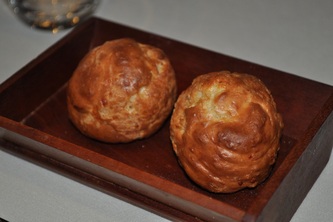

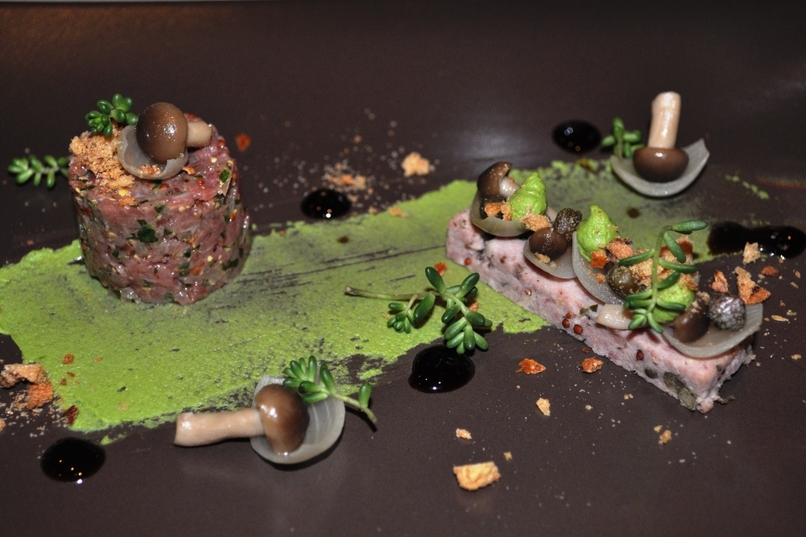
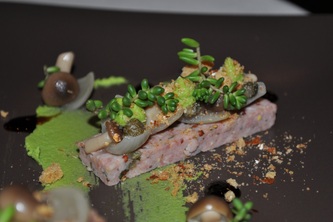

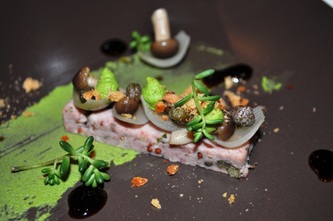
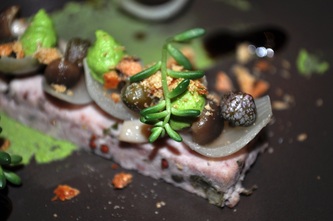

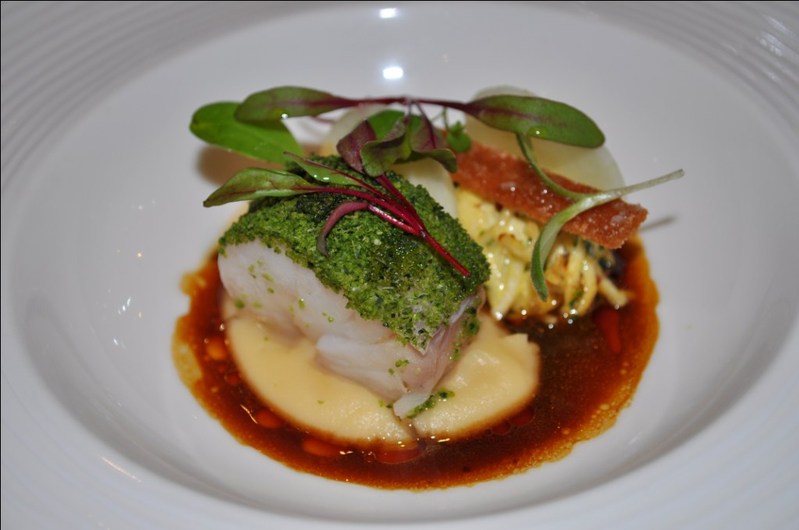
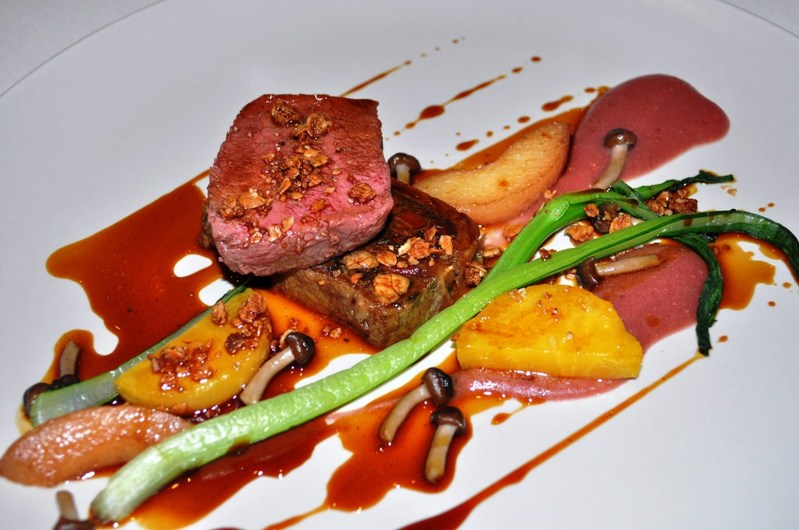

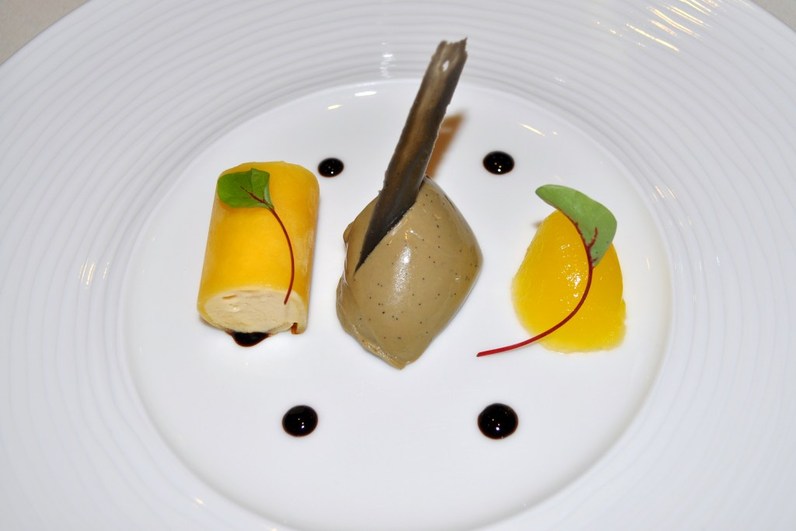
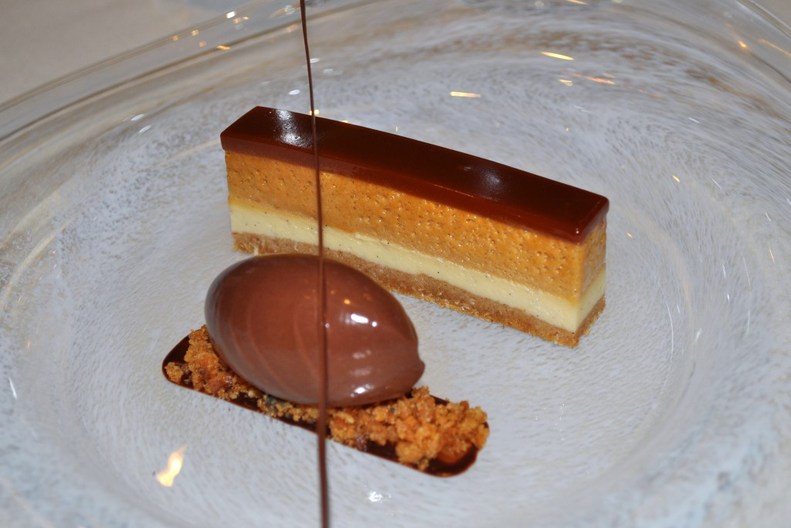
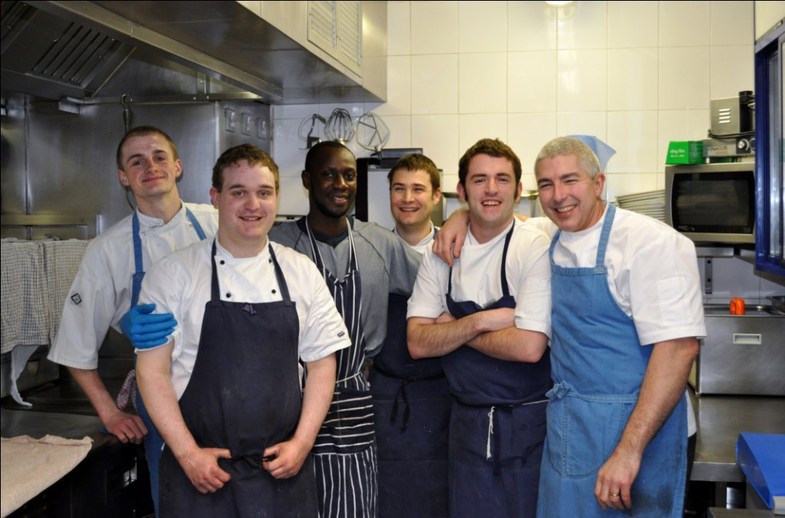


 RSS Feed
RSS Feed